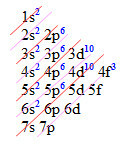The political history of Brazil is marked by an artificiality of values and institutions that defaced the political space, a fundamental aspect for the participation of civil society. Such artificiality began in the Empire and its hypertrophy would later lead to the advent of the Republic at a time when the arbitrary and centralization with which the Emperor governed (through mechanisms such as the Moderating Power), as well as the inexistence of political parties with clear positions and defined. Urged for greater participation in decisions, the coffee aristocracy would defend the democratic principle in the sense of promoting the decentralization of power as opposed to the centralization in the hands of the Emperor.
This scenario, however, although it ended up in the Republic, did not bring about major changes, except for the greater strengthening of the coffee elites of São Paulo and Rio de Janeiro. Angela de Castro Gomes, in History of Private Life in Brazil (1998), states that in the early days of the Republican Period what was seen was the struggle between caudilloism (or coronelismo), shaped in the rural environment and expressed by the local government, and Caesarism, which meant the central public authority, Caesarism which was certainly guided by European ideals “imported”.
When thinking about the advent of the Republic, it is essential to understand which class was the protagonist. As is known, there was no participation of the country as a whole, but the prominence of the agrarian elite that spearheaded this “fight” against the Empire, in a way indifferent to the people, but ultimately also in their “name”, since the guardianship of the excluded had always been something given with a certain normality in the order privatist. Obviously, more for their interests than for any other motivation, the agrarian elites, heads of ruralism and representatives of this patriarchal society, took power and deposed the Empire, with beautiful speeches calling for democracy, federalism, in short, institutions that could bring modernization to national politics in order to build a Nation-state. However, this happened more in rhetoric than in practice.
The promotion of political practices under the aegis of private power at the same time de-configured the political mechanisms of the debate of ideas, becoming a anathema within a republican state that tried to confront a liberalism "poorly copied" from the positivist and liberal currents of Europe at the end of the XIX century. Thus, the construction of a political space capable of promoting its last and greatest objective: the debates between different actors and classes became impossible. with the promotion of deliberations achieved in a democratic way and discussed in a situation of equality between the legitimate representations of society and its groups. When the oligarchic elites exclude the mass (wholly or partially) from effective political participation (and that, by the way, is accommodated in their ruralism), the State administration and national policy for the “irrationality” (it seems) of the tutelage of the people and privatism, even referring to a feeling of not needing the presence of the State. In other words, in Brazil, this blending between the public and the private, that is, this extension of individual interest (or of a group) within the space that should be public, ended up in a framework completely foreign to the theoretical definition of political space, which we can find in the Policy Dictionary, organized by thinkers such as Norberto Bobbio.
From Imperial Brazil, through the Old Republic and the Vargas years, and to some extent even today, the idea of the consequences given by the overlap between the public and private, the mixture of both, hindering the real emancipation of civil society, as well as with regard to the development of what we can understand as the practice of citizenship. To a large extent, the desire of the elites prevailed in Brazilian society, and this determinism of the private sphere atrophied the construction of an effective political space for a so-called democratic country. This is evident both from the lack of interest in politics on the part of most common people, and from the constant corruption scandals of those who use public affairs for private interests.
Thus, in the speech of Nestor Duarte in his work entitled The Private Order and the National Political Organization (1939), any interest, as a private feeling, that interferes in the political sphere is hostile to order and civil participation. “Then begins the great conflict of our political process. An infernal reality that submits to him also perverts him. Or it reduces and simplifies” (DUARTE, 1939, p. 241).
Paulo Silvino Ribeiro
Brazil School Collaborator
Bachelor in Social Sciences from UNICAMP - State University of Campinas
Master in Sociology from UNESP - São Paulo State University "Júlio de Mesquita Filho"
Doctoral Student in Sociology at UNICAMP - State University of Campinas
Sociology - Brazil School
Source: Brazil School - https://brasilescola.uol.com.br/sociologia/atrofiamento-participacao-civil-na-historia-brasil.htm


